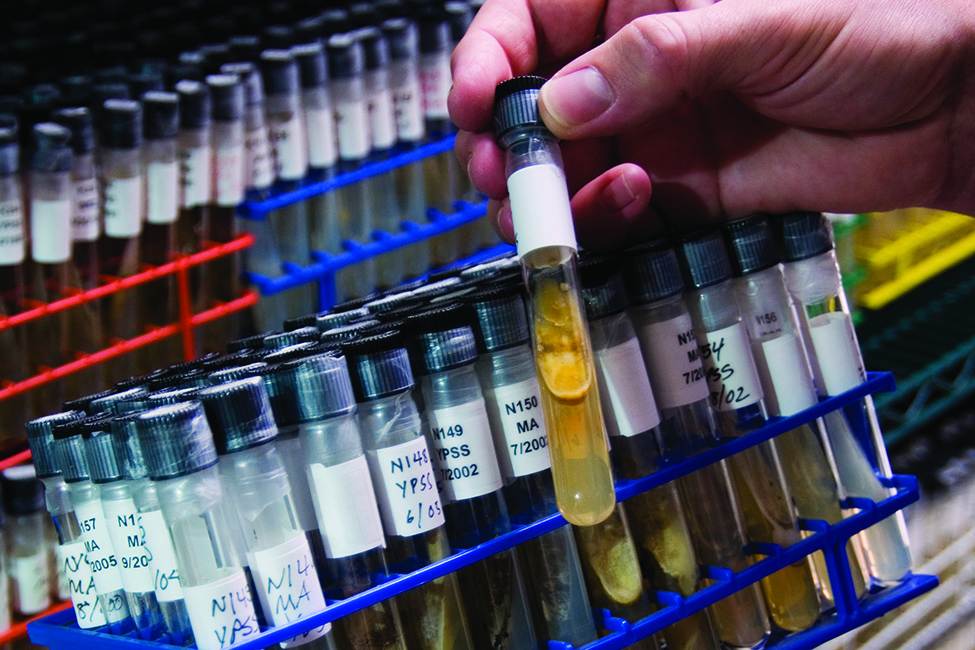Scientists Recreating Cancer-Fighting Sea Sponge Compound
FAU Harbor Branch scientists are researching ways to create a biosynthetic version of a compound found in a sea sponge that is very active against cancer cells.

Specimens from FAU Harbor Branch's marine natural products library
In the 1990s, scientists at FAU’s Harbor Branch Oceanographic Institute isolated the compound, lasonolide A, from a marine sponge and found that it was extremely active against cancer cells including lung cancer, leukemia and pancreatic cancer. Later work conducted at the National Cancer Institute (NCI) showed that lasonolide A was also potently active against melanoma and glioblastoma. Lasonolide A kills cancer cells in a unique way that may provide new opportunities for treating cancer. One challenge to clinical development of lasonolide is how to produce large quantities of the compound when the supply of the sponge it is derived from is limited. The NCI recently awarded a grant that will allow researchers at FAU Harbor Branch to recreate lasonolide A in a laboratory flask using the genes that nature uses to make the compound.
FAU Harbor Branch assistant research professor Guojun Wang, Ph.D., is the principal investigator on the project along with research professor and co-investigator Shirley Pomponi, Ph.D. The pair were recently awarded a multi-year grant of more than $380,000 from NCI to identify which genes nature uses to make lasonolide A and then to use these genes to produce the material in the laboratory. If successful, this work will provide the foundation for developing a sustainable method to supply a “biosynthetic” form of the compound for use in clinical trials and future treatments in different types of cancer.
“Bioactive compounds are genetically encoded in nature,” said Wang. “Finding genes, or ‘genetic codes,’ is the key to understanding how nature makes these compounds, and for humans to make better use of them.”
Cancer.org reports that melanoma is by far the most common of all cancers, and lung cancer is the second most common type in men and women. Pancreatic cancer is the fourth-leading cause of cancer death in the U.S., and leukemia is the fifth. Lasonolide A shows the ability to fight all of those types, therefore, being able to unlock the genetic codes and produce a biosynthetic version of the compound could potentially have far-reaching impacts on the future of cancer treatment.
For more information, contact Carin Smith at 772-242-2230 or carinsmith@fau.edu.
-FAU-
Tags: medicine | research | harbor branch | technology